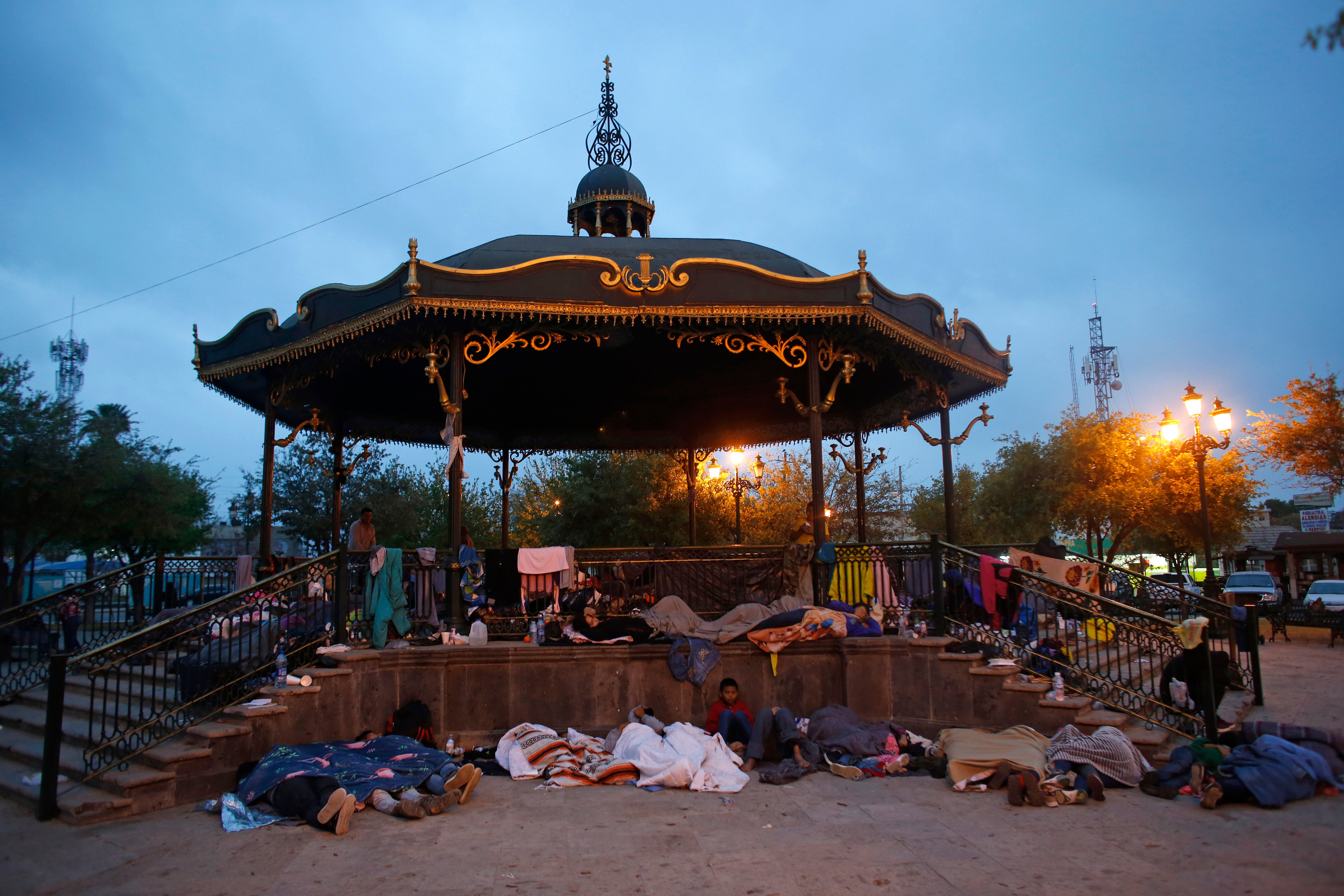Mexico relocates migrant camp; Haitians appear at border
Mexican authorities have relocated a migrant camp that sprung up in a park in the border city of Reynosa

Your support helps us to tell the story
From reproductive rights to climate change to Big Tech, The Independent is on the ground when the story is developing. Whether it's investigating the financials of Elon Musk's pro-Trump PAC or producing our latest documentary, 'The A Word', which shines a light on the American women fighting for reproductive rights, we know how important it is to parse out the facts from the messaging.
At such a critical moment in US history, we need reporters on the ground. Your donation allows us to keep sending journalists to speak to both sides of the story.
The Independent is trusted by Americans across the entire political spectrum. And unlike many other quality news outlets, we choose not to lock Americans out of our reporting and analysis with paywalls. We believe quality journalism should be available to everyone, paid for by those who can afford it.
Your support makes all the difference.Mexican authorities said Tuesday they have relocated a migrant camp that sprung up in a park in the border city of Reynosa, moving about 2,000 people from Central American and Haiti to a shelter in the city, across the border from McAllen, Texas.
The camp of migrants mainly from Guatemala, El Salvador, Honduras and Haiti sprung up after U.S. officials. citing the pandemic, invoked a a health rule that denies migrants a chance to seek asylum.
Mexico's National Immigration Institute said the migrants were taken near midnight Monday to the shelter, which it said will have better hygiene and food services.
But on Monday, people in another border city, Nuevo Laredo, said hundreds of migrants, mainly Haitians, have streamed into the city, which is across the border from Laredo, Texas
The rush apparently started after the U.S. began processing some asylum seekers there.
The Catholic bishop of Nuevo Laredo said Monday that migrant shelters there are already overcrowded, with some migrants sleeping outside in tents.
Bishop Enrique Sánchez Martínez said migrants started streaming into Nuevo Laredo in late April, though the city isn’t usually popular among migrants, in part because it is dominated by the violent Northeast drug cartel.
“It is new for us because this is the last place they come, due to the conditions of our border, of our city, which are sometimes adverse for migrants,” the bishop said. “But since they opened the door in the United States to asylum requests, a lot of them came in large groups.”
Marvin Ajic, the director of the Casa Nazareth shelter, said that around April 16, Mexican authorities notified the shelters that the United States would resume processing asylum claims for humanitarian reasons.
The U.S. had begun allowing more people in, especially Central American adults, to prepare for lifting Title 42 — a pandemic-era health rule that denies migrants a chance to enter the U.S. seek asylum — on May 23. But a federal judge in Louisiana ruled last week that the government could not unwind the rule before the end date.
“The (Mexican) immigration officials organized things with the shelters, and the plan was to send people who had been waiting a long time, without any checks, basically anyone,” Ajic.
That apparently drew the attention of other migrants, including Haitians.
In September, similar rumors sparked a rush by about 15,000 mostly Haitian refugees to the Texas border, where they camped under a bridge. U.S. officials began large scale deportations of Haitians while also allowing thousands to remain in the U.S.
Ajic warned migrants against coming to the border, noting the risks. On Monday, Mexico’s National Immigration Institute said that so far this year, it has hauled the bodies of 19 immigrants from the Rio Grande, also known as the Rio Bravo.